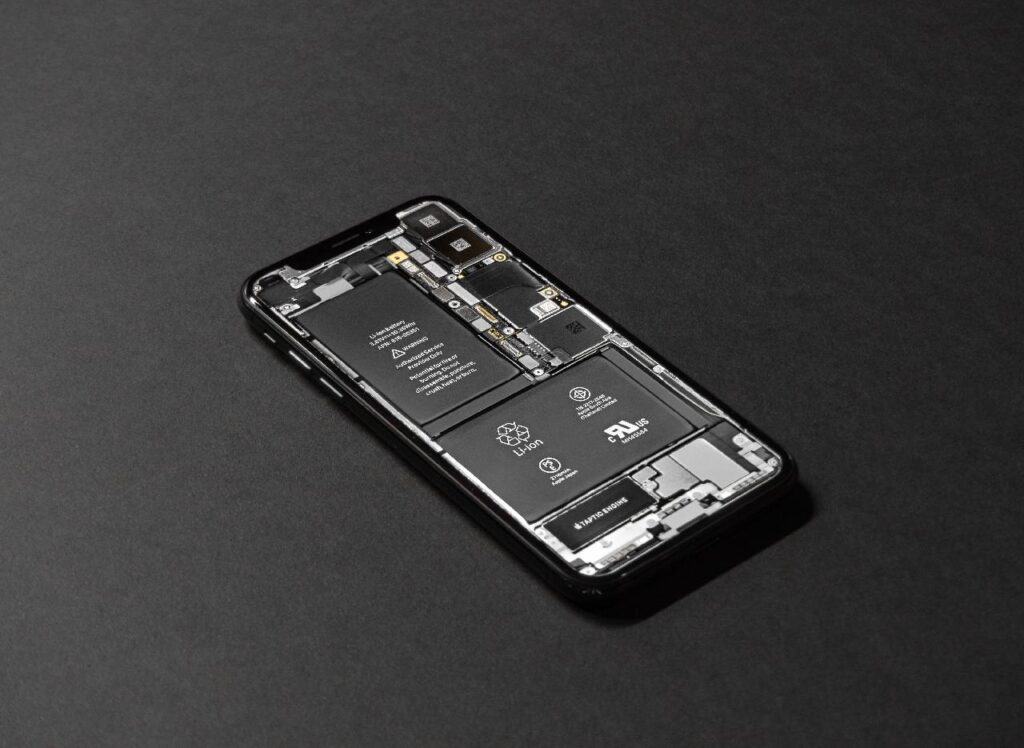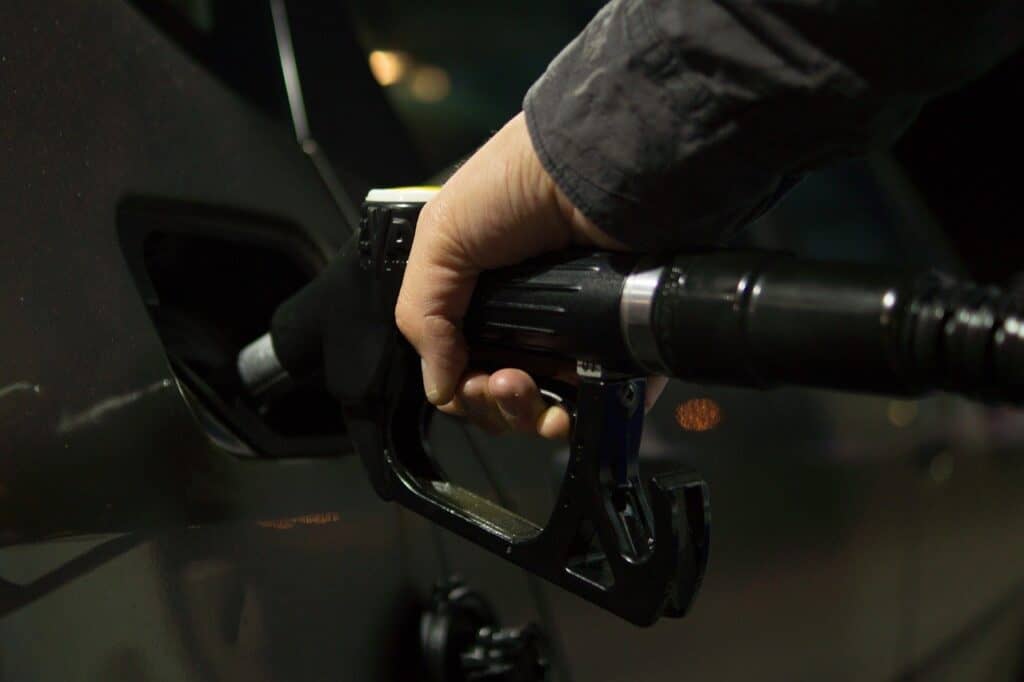Until fairly recently, lithium popped into our lives only in school science lessons and in movies about mental health issues. Today, of course, lithium has revolutionized the tech industry and it’s in the batteries of every device from an Apple iPhone to a brand-new Tesla Mark 3. But have we invited a huge fire risk into our lives in our quest for light, portable and powerful batteries?
Lithium can catch fire fairly easily and burn intensely. It will spontaneously combust (auto-ignition) at about 354 degrees Fahrenheit ( Celsius). It can even cause explosions in certain circumstances.
In this article, we will take a closer look at lithium and how it handles heat and fire, how lithium and lithium-ion batteries can be a fire hazard, and what you need to know to stay safe around this technology. Here is what you need to know.
Your # 1 priority is keeping your family safe. As a firefighter, I recommend everyone has updated smoke detectors that don’t require battery changes, like these ones from Kidde, a fire extinguisher, like this one from Amerex, and a fire escape ladder if you have bedrooms above the first floor, I recommend this one from Hausse.
Also read: What Makes Something Flammable?
What Is Lithium?

Lithium is the third element in the periodic table and it’s the first solid (the two before are gasses) and it is also the lightest metal.
It is an alkali metal and shares the same period as sodium, potassium, cesium, etc. which means that it is a very reactive element and to keep it from reacting it must be stored in non-reactive mineral oil (or if budget’s not an issue, you can also keep it in a vacuum or even in an inert atmosphere.
Lithium reacts so quickly in the air that it tarnishes very quickly, if you cut a piece of lithium, you will find a silver-grey surface that quickly blackens as it oxidizes.
Because of its reactivity, it cannot be found in its pure form in nature, and lithium is found in compounds in the form of minerals.
To produce lithium, the easiest thing to do is to carry out electrolysis on a solution of lithium chloride and potassium chloride, which can be extracted from seawater.
The number one use for lithium today is in batteries but it is also used in industry in various ways including as a lubricant, to create heat-resistance glass and ceramic items, and to be used in the production of many metals.
Lithium is also still used in medicine where it appears to have a strong benefit to those people suffering from bipolar disorder and can help them to stabilize their mood.
Also read: How To Put Out An Electrical (Class C) Fire: Firefighter Approved
Is Lithium Flammable?
Lithium can be flammable, as it can catch fire at relatively low temperatures. It is also a fairly reactive element.
However, it will burn very easily in the presence of oxygen (which is why it tarnishes so easily without any heat at all) and is considered to be very combustible.
It might not be the easiest thing to set fire to but it’s not far off it, either.
You can learn more about lithium and fire in this video:
Also read: Is Iron Flammable? Sometimes…
How Does It Catch Fire?
Lithium reacts violently on exposure to water, rather like its periodic table maters sodium and potassium do, the reaction is highly exothermic (that is it produces a lot of heat) and this can cause the lithium to burn, as well as anything nearby.
That’s why it’s important to avoid handling pure lithium with your bare hands, the moisture in your skin (particularly if you’ve been sweating) is enough to trigger this reaction and you could get severely burned.
Can Lithium Batteries Catch Fire?
Lithium-ion batteries contain a liquid and in that liquid are lots of tiny bits of lithium (lithium ions, in fact) and in normal operation, this is just fine.
The lithium is sealed off from the air and any moisture in it and thus, it doesn’t have an opportunity to catch fire.
However, if the battery is pierced, not only can moisture from outside get in and react with the lithium but often the other half of the cell, which does contain water, will be pierced too and the lithium will suddenly be dumped into the water.
In this instance, a lithium battery can quickly catch fire and it’s one of the reasons that you’re not allowed to store lithium batteries in your hold luggage on a plane.
They’re worried that an accident in the hold might damage the battery, among other things, and set a fire that they can’t put out.
It is important to use the proper methods for extinguishing a lithium battery fire, read this article for more info: The Best Fire Extinguisher for Lithium-Ion Batteries – 2021
How Hot Can A Lithium Battery Get?
A lithium battery, under normal operation, should operate between 10 degrees Celsius (50 degrees Fahrenheit) and 55 degrees Celsius (122 degrees Fahrenheit).
However, if the battery catches fire, then we’re talking 1000 degrees Fahrenheit (538 degrees Celsius)as the heat of the fire and that’s not the only risk, depending on how the fire started, the battery may also explode and shower the area around it in 1000 degree shrapnel which is ideal for starting further fires.
This video goes into more detail about lithium-ion batteries:
Also read: Can Batteries Catch On Fire? Do They Ever Explode?
Do Lithium Batteries Need To Be Heated?
A lithium battery does not need to be heated to provide the best possible performance.
In fact, lithium batteries perform best at ordinary room temperatures and extremes of heat (either hot or cold) can cause more rapid discharges.
Can A Lithium Battery Freeze?
A lithium-ion battery performs better than the equivalent lead-acid battery at temperatures below freezing, and in fact, you can get about 80% of the charge from one at this temperature.
It is worth noting that this performance degradation in the cold is why professional photographers end up carrying pockets full of batteries on colder shoots.
What Temperature Do Lithium Batteries Stop Working?
Your lithium batteries will stop working at about -20 degrees Celsius or -4 degrees Fahrenheit. That’s pretty cold and we’d recommend that if you intend to get caught in temperatures like that, that you wrap up very warm and don’t worry too much about using your iPhone.
What Happens If You Shoot A Lithium-Ion Battery?
Given that a punctured lithium-ion battery is both a fire and explosion risk, it shouldn’t come as a surprise that you greatly increase the risk of explosion and practically guarantee a fire, if you should shoot a lithium-ion battery.
We don’t recommend that you attempt this either, you have no control over where shrapnel would land and it remains hot for a very, very long period following the initial explosion making it hard to manage if it represents a further fire risk.
How Likely Is A Lithium Battery To Explode?
Lithium battery scientists say that there’s roughly a 1 in 1 million chance of any given lithium battery exploding by itself due to an internal fault.
And that most of these fires will happen long after the battery has been disposed of.
In fact, they say that you have much better odds of being struck by lightning than being caught in a battery fire.
We say that given that both Apple and Samsung have released consumer products with a much higher chance of fire than usual, we’d give new products a few weeks before you buy them, then if they do explode, it won’t be on you.
Can You Completely Discharge A Lithium-Ion Battery?
You can completely discharge any battery but the question is more “should you” than “can you” and it’s fair to say that fully discharging lithium-ion batteries is a bad idea.
Full discharge means that the reaction within the cell is completely exhausted and it is hard to reverse this reaction using a new charge.
It can seriously damage the longevity of a battery to be fully discharged.
The good news?
Even when your battery meter says “0%!” there’s still some charge in your battery, you have to work fairly hard to completely discharge one.
Can A Discharged Lithium Battery Explode?
Yes, in fact, even though a discharged lithium battery should be more chemically stable, it’s still full of lithium ions and they can react with water still, no problem at all.
How Do You Stop A Lithium-Ion Battery From Exploding?
Turn off your devices when they are not in use and keep lithium batteries away from other batteries which can cause them to explode.
If you must remove the battery from the device, put it in a special storage container – lithium batteries can explode in your pockets if they come into contact with your keys or coins!
What Happens If You Breathe In Lithium?
Lithium whether as a powder or gas is highly reactive and if you breathe it in, it will react with the water in your lungs and throat.
Even small quantities can lead to shortness of breath, vomiting, diarrhea, and stomach pain.
Large quantities can lead to pulmonary edema (that is fluid in the lungs), choking, and death.
Try not to breathe lithium.
Sources
1, 2, 3, 4, 5, 6, 7, 8, 9, 10, 11, 12, 13, 14

